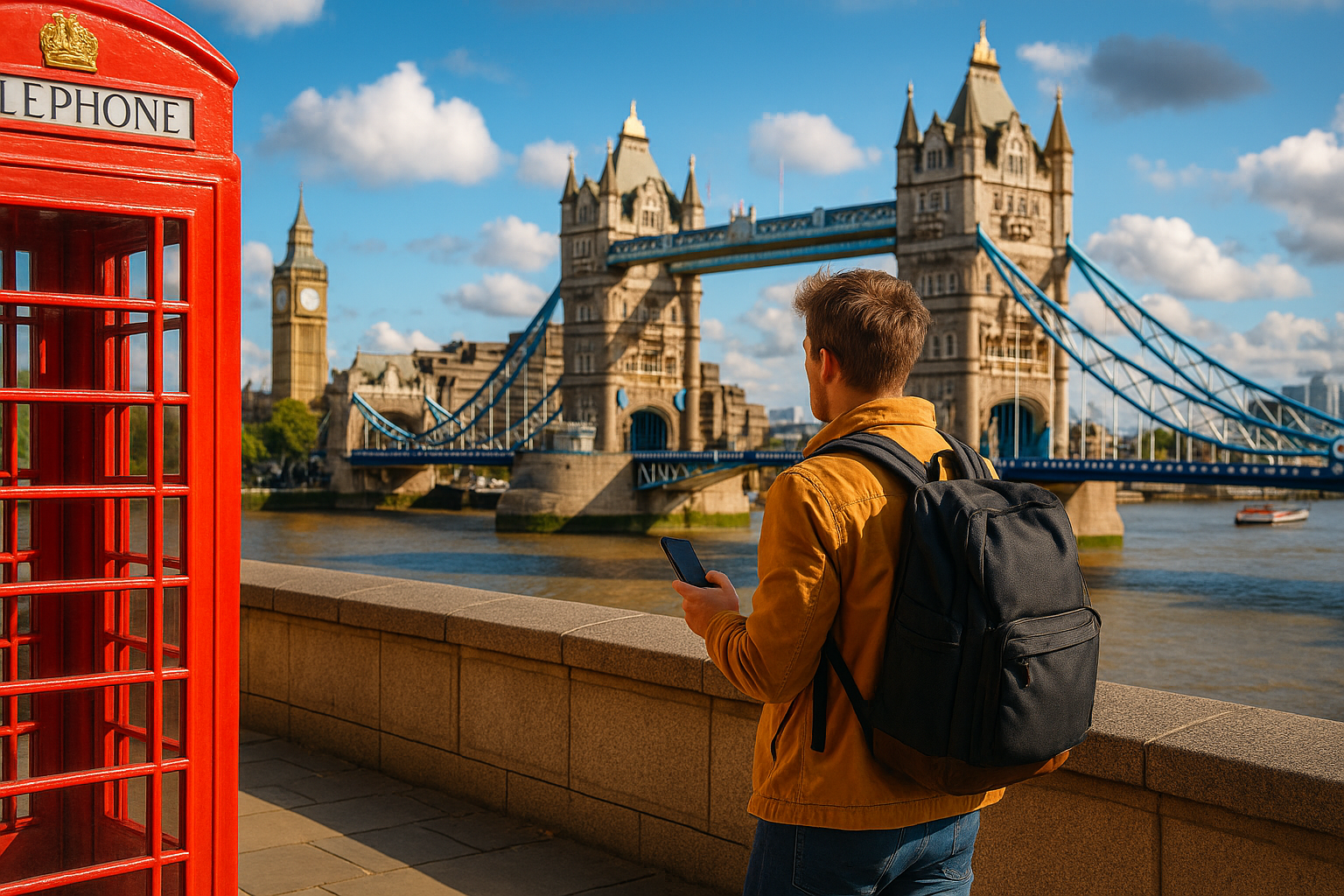UK Universities Pioneering AI Travel Innovations
The world of travel is on the brink of a technological revolution, and UK universities are at the forefront of this transformation. With the launch of Dida's 'Future of Travel' Innovation Challenge, students are being prompted to explore and develop AI-powered solutions that could reshape the industry by 2025. This challenge not only highlights the growing importance of artificial intelligence in travel but also showcases the innovative spirit within academic institutions across the UK.
The Significance of the Dida 2025 Innovation Challenge
Dida's 'Future of Travel' Innovation Challenge is more than just a competition; it's a platform for fostering creativity and technological advancement in travel. Targeted specifically at UK university students, this initiative aims to harness the fresh perspectives and cutting-edge knowledge that these young minds bring to the table. By focusing on AI, the challenge encourages participants to think beyond conventional travel solutions and consider how technology can enhance travel experiences, improve efficiency, and drive sustainability.
The challenge is designed to address various aspects of travel, from booking and customer service to logistics and sustainability. By inviting students to propose AI-driven solutions, Dida is not only investing in the future of travel technology but also in the future leaders of the industry. This initiative underscores the critical role that academic institutions play in shaping the skills and knowledge of future innovators.
How AI is Transforming the Travel Industry
Artificial intelligence is rapidly changing the landscape of the travel industry. From personalized recommendations to predictive analytics, AI is enhancing the way travelers plan, book, and experience their journeys. Here are some key areas where AI is making a significant impact:
- Personalization: AI algorithms analyze customer data to provide personalized travel recommendations, ensuring that travelers receive suggestions tailored to their preferences and past behaviors.
- Automation: AI-powered chatbots and virtual assistants are streamlining customer service by handling routine inquiries, thus freeing up human resources for more complex tasks.
- Predictive Analytics: By analyzing large datasets, AI can predict future travel trends, helping companies optimize pricing strategies and manage inventory more effectively.
- Operational Efficiency: AI systems improve operational efficiency by automating tasks such as flight scheduling, baggage handling, and route optimization.
The integration of AI in travel not only enhances the customer experience but also contributes to increased productivity and cost savings for businesses.
UK Universities: Breeding Grounds for Innovation
UK universities have long been recognized as leading institutions in technology and innovation. With the advent of AI, these institutions are once again proving their mettle by shaping the future of travel. Through partnerships with industry leaders like Dida, universities are providing students with opportunities to work on real-world problems, thereby bridging the gap between academic research and industry application.
For instance, universities like Imperial College London and the University of Cambridge are renowned for their research in AI and machine learning. These institutions are not only contributing to theoretical advancements but are also encouraging students to apply their knowledge to practical challenges such as those presented by the Dida Innovation Challenge.
Moreover, these collaborations often lead to the development of spin-off companies and startups, further contributing to the growth of the AI sector within the UK. By fostering an environment of innovation and entrepreneurship, UK universities are playing a pivotal role in shaping the future of AI-powered travel.
Examples of AI Innovations in Travel
Several AI innovations have already started to make waves in the travel industry, thanks to the ingenuity of students and researchers. Some notable examples include:
- AI-Powered Itinerary Planners: These tools use machine learning algorithms to suggest travel itineraries based on user preferences, historical travel data, and current trends.
- Smart Travel Assistants: Virtual assistants that utilize natural language processing to interact with travelers, providing real-time information and assistance throughout their journey.
- AI-Enhanced Customer Feedback Systems: These systems analyze customer feedback to identify patterns and areas for improvement, helping companies enhance their service offerings.
- Predictive Maintenance for Airlines: AI systems that predict maintenance needs for aircraft, reducing downtime and improving safety standards.
These innovations not only enhance the travel experience but also contribute to the industry's overall sustainability and efficiency.
The Future of AI-Powered Travel
As AI continues to evolve, its applications in the travel industry are expected to become even more sophisticated. Future developments may include:
- Hyper-Personalized Travel Experiences: Utilizing AI to create travel experiences that are customized to an individual's unique preferences and needs.
- Advanced Predictive Systems: Developing AI models that can predict travel disruptions and offer alternative solutions in real-time.
- Enhanced Sustainability: Using AI to optimize resource management, reduce waste, and minimize the environmental impact of travel.
These advancements hold the potential to transform travel into a more seamless, enjoyable, and responsible experience for all.
Conclusion: The Role of Education in AI-Driven Travel
The Dida 2025 Innovation Challenge is a testament to the crucial role that education plays in driving innovation within the travel industry. By engaging students in real-world challenges and encouraging them to develop AI-powered solutions, UK universities are not only preparing them for future careers but also contributing to the industry's evolution.
As AI technology continues to advance, the collaboration between academia and industry will be vital in ensuring that the travel sector remains at the cutting edge of innovation. With initiatives like Dida's challenge, the future of travel looks promising, with AI poised to create more personalized, efficient, and sustainable travel experiences.
Sources
This article references: Dida launches 'Future of Travel' Innovation Challenge for UK university students, October 9, 2025

Comments
Leave a Comment
No comments yet. Be the first to comment!